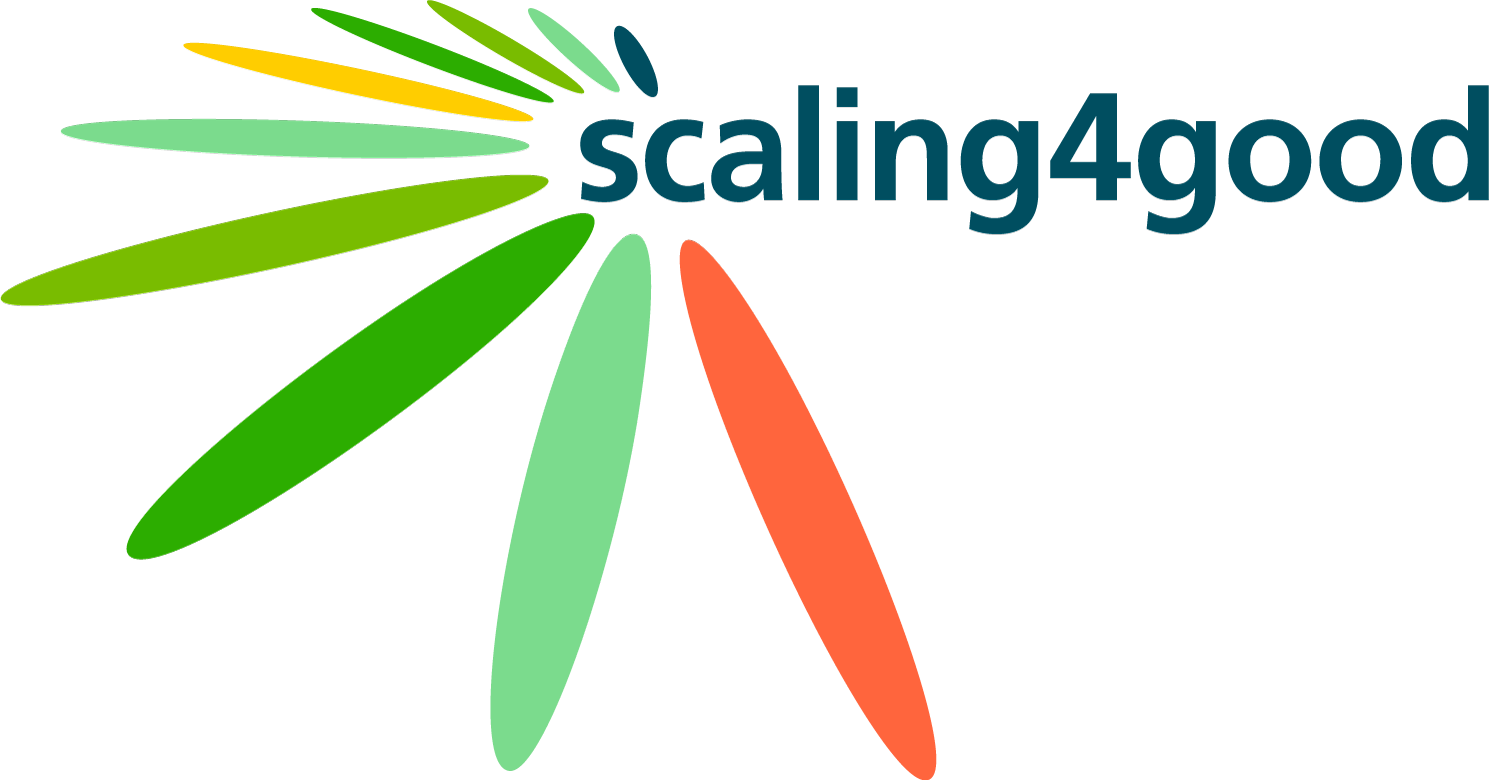Climate change is a symptom of current predominant personal and societal values, belief systems and aspirations which continue to lead our actions into an unsustainable direction. There is currently a large gap between “doing well” and “doing good”. Strengthening the pathway to “do good” can be achieved through personal transformation. Personal transformation being set and understood at a much more profound level than setting incentives to change behaviour although a change in behaviour can be expected as an outcome.
Scaling starts with the question “what do we scale?” As “scaling4good” we must acknowledge that there is still a large gap between “doing well” and “doing good”. You can be very successful in our economic systems (doing well) without working for the well-being of humanity and the planet (doing good). This relates to the fact that our economic systems take money as the metrics of everything which is seen in the GDP, growth (and not development) units used to govern ourselves and the difficulty to integrate the “good” in these systems: the good remains an externality.
Thus how can we incentivise the “good” actions and behaviour? The pathways which are being pursued to change behaviour generally involve external change agents or mechanisms. Thus re-setting contexts and frameworks through policy measures (laws), institutional designs or nudges. Many interesting activities are currently pursued in this field by research, policy makers, businesses and NGOs and they will certainly make an important contribution to climate change mitigation. These actions neglect, that humans have the potential to do good out of their own will and without specific incentives. The good as an externality is also implied in the deconnections: deconnection from the planet is the most obvious, but then deconnection from the others and finally deconnection from ourselves lie at the core. If we look at this solely from an evolutionary perspective humans can be seen as a group of “living creatures” that have succeeded in evolution because they were able to create common beliefs that helped cooperate and live in structured societies through these beliefs. Thus cooperating is at the core of our very nature and collaborating is of course key when scaling impact.
When we talk about personal transformation we refer to addressing the internal context. Personal Transformation stands for the process of reconnecting to oneself and thus developing consciousness of our own values and belief systems. It furthermore encompasses to set this on an ethical foundation through a practice of compassion, which allows to also reconnect with others, nature and anything beyond. In compassionate mediation one dives into the feeling of love for a dear one, extending it to friends, colleagues, acquaintances, people you only know from sight, to every human being and all sentient being. This feeling of intense love then wraps everyone in compassion.

So how should this lead to societal change? If we look at the research conducted by Prof. Singer (in collaboration with Mind & Life Institute) leading the social neurosciences department at the Max Planck Institute of Human Cognitive and Brain Sciences we find that through a continuous practice of certain types of meditation (esp. the compassionate aspect) our neuronal structures can be altered. This alteration can be seen in MRIs (Magnetic Resonance Imagining – a standard technique in modern medicine) and can take place even in adulthood. A regular meditation practice leads also to a shift in our predominant motivational system. Thus instead e.g. having consumption as predominant motivational system which leads to a self-interest behaviour if a meditation on compassion is pursued this will change to care which consequently triggers a pro-social behaviour.
These findings not only pave the pathway to a sustainable system change from within but in regards to e.g. climate change the potential of meditation as a “remedy” becomes obvious. As indeed consumption is influenced, this main driver can be addressed in a very simple way and without a need to alter marketing campaigns or messaging and thus trying to manipulate behaviour once more.
When I was referring to a systems change before I am indeed also referring to the potential of meditation to change our “stable preferences” (whether you are altruistic or egoistic in your predominant behaviour) as economists would call them. This leads necessarily to re-thinking the neo-classic economic models based on a homo economicus and brings us to a caring economy. Thus changing the system from its very core – the actors and trusting in the evolution of it.
“You cannot solve problems with the same thinking used to create the problems” Albert Einstein
So what should we do with this wonderful knowledge? Well, I suggest that if you do not already have a regular meditation practice to start one. My only advice would be that when you do, to go beyond simple practices of mindfulness and progress to practices of compassion (often referred to as Metta meditation) also.
To make personal transformation more approachable a new 10 months programme for people just like you – with both scientific curiosity as well as the willingness to embark on a new journey – will start this October. Check out STRIDE learning.
To scale “doing good” we need to induce a transformation both of ourselves (reconnection) and the systems in which we live.

